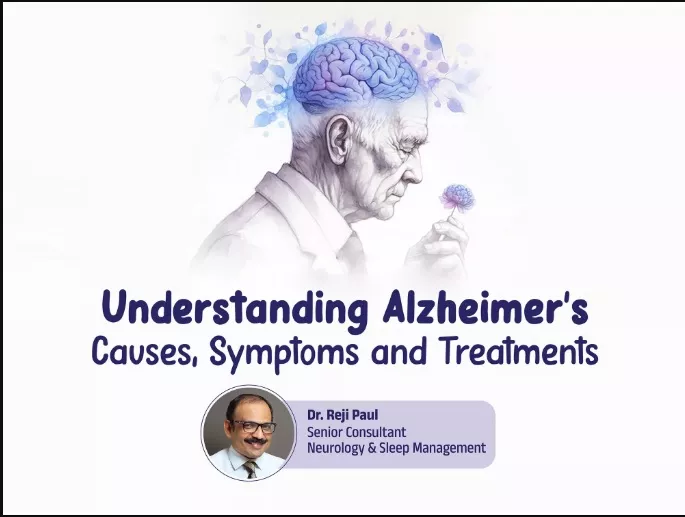Alzheimer's disease is a progressive neurodegenerative disorder that primarily affects memory, thinking, and behavior. It is the most common cause of dementia, accounting for 60-80% of cases, and typically affects older adults, though early-onset Alzheimer's can occur in individuals under 65. If you notice any early signs, consulting a neurologist in Kochi Kerala can help with timely diagnosis and management.
Causes
The exact cause of Alzheimer's is not fully understood, but several factors contribute to its development, including:
- Genetics: A family history of Alzheimer’s, particularly involving mutations in genes like APOE (Apolipoprotein E), increases the risk.
- Age: The risk of developing Alzheimer’s significantly increases after the age of 65.
- Environmental factors: Brain injury, lifestyle, and long-term exposure to toxins can play a role.
- Amyloid plaques and tau tangles: Abnormal buildup of amyloid proteins in the brain forms plaques, while tau proteins twist into tangles, disrupting cell communication and leading to cell death.
Symptoms
Alzheimer's disease progresses slowly, starting with mild memory loss and advancing to severe cognitive impairment.
Common symptoms include:
1. Early-stage:
• Memory lapses (e.g., forgetting recent conversations or names)
• Difficulty planning or solving problems
• Confusion with time or place
2. Middle-stage:
• Difficulty recognizing family or friends
• Increased mood swings and irritability
• Disrupted sleep patterns
• Wandering and getting lost
3. Late-stage:
• Severe memory loss
• Difficulty swallowing or speaking
• Loss of ability to carry out daily tasks, like eating or dressing
Treatment
There is no cure for Alzheimer's, but treatments aim to manage symptoms and improve quality of life. Seeking care at a neurology hospital in Kochi Kerala can provide access to specialized therapies and support.
Prevention
While Alzheimer’s cannot be entirely prevented, lifestyle changes may reduce the risk:
- Physical activity: Regular exercise improves brain health and may delay the onset of symptoms.
- Cognitive engagement: Mental exercises, such as puzzles, reading, and learning new skills, can strengthen brain function.
- Healthy diet: A Mediterranean or heart-healthy diet, rich in fruits, vegetables, and whole grains, is linked to better brain health.
- Social connections: Engaging in social activities and maintaining relationships may lower the risk of cognitive decline.
- Managing chronic conditions: Controlling diabetes, hypertension, and high cholesterol can help protect brain health.
Alzheimer’s disease poses significant challenges, but early detection and proper care can improve life expectancy and overall well-being for those affected.






